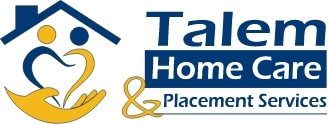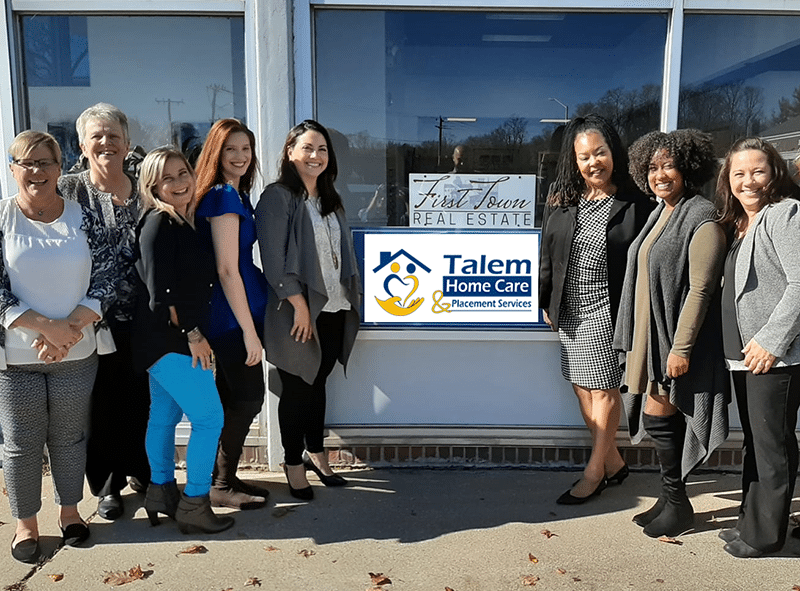Recognizing when it’s time to consider end-of-life care for your aging parent is a challenging and emotional process. Understanding the signs and knowing how to provide the best care can make this difficult time more manageable.
Home care offers a comforting and familiar environment for your loved one, ensuring their dignity and quality of life are maintained.
Sign #1: Unmanageable Pain and Symptom Management
If your parent’s pain becomes unmanageable despite regular treatment, it might be time to consider end-of-life care. Symptoms like persistent nausea, vomiting, difficulty swallowing, and pressure ulcers that don’t improve with treatment are clear indicators.
These issues not only cause physical discomfort but also emotional distress for both the patient and the family. Addressing these symptoms with appropriate care can significantly improve the quality of life in the final stages.
Sign #2: Frequent Medical Interventions
A noticeable increase in hospital visits, emergency room trips, or frequent consultations with healthcare providers can signal declining health. Research from Amedisys indicates that multiple doctor or hospital visits in the last six months are a strong indicator of the need for hospice or palliative care.
This pattern often reflects an underlying deterioration that regular medical treatments cannot halt.
Sign #3: Decline in Personal Care Capabilities
As your parent’s health declines, you may notice they struggle with personal care activities such as bathing, dressing, and eating. They might need assistance with tasks they once handled independently.
This loss of autonomy can be distressing and a sign that end-of-life care might be necessary. In-home care services can provide the necessary support, ensuring your parent receives help with dignity and compassion.
Sign #4: Cognitive and Behavioral Changes
Confusion, restlessness, and agitation are common in older adults nearing the end of life. Your parent might exhibit these signs, sometimes becoming combative or withdrawn.
They may experience hallucinations or delusions, making it challenging to connect with their surroundings and loved ones. These behavioral changes are indicators that specialized care is needed to manage their symptoms effectively.
Sign #5: Physical Decline
Noticeable weight loss, a significant decrease in appetite, and increased fatigue and sleep are physical signs that the body is slowing down. These changes are often part of the natural progression towards the end of life.
These symptoms indicate that the body is no longer able to sustain itself in the same way and that supportive care is needed to ensure comfort.
Sign #6: Caregiver Burnout
As a caregiver, feeling stressed and overwhelmed is a natural response to the increasing demands of caring for an aging parent. If you find yourself struggling to manage daily caregiving responsibilities, it’s a sign that additional support is necessary.
End-of-life care services not only support your loved one but also provide much-needed relief and resources for caregivers, allowing you to focus on quality time with your parent.
Benefits of Home-Based End-of-Life Care
Home-based end-of-life care offers numerous benefits, including the comfort and familiarity of a home environment, personalized and compassionate care plans, and comprehensive support for families.
Being in a familiar setting can significantly enhance emotional and psychological well-being. Care plans tailored to individual needs ensure that your parent receives the best possible care while family members are supported through emotional and practical resources.
Steps to Take When Considering End-of-Life Care
Initiating the Conversation
Discussing end-of-life care preferences with your aging parent is crucial. Approach the conversation with sensitivity and openness. Experts suggest using open-ended questions to understand their wishes and fears, making sure they feel heard and respected.
Planning and Coordination
Collaborate with healthcare providers to create a comprehensive care plan that addresses medical, emotional, and spiritual needs. This coordinated approach ensures that all aspects of your parent’s care are managed effectively, providing peace of mind for both the patient and the family.
Utilizing Available Resources
Leverage hospice and palliative care services to provide medical, emotional, and spiritual support. These services offer valuable resources that can ease the burden on families, ensuring that your loved one receives the best possible care during their final stages.
Practical Tips for Home Care
Managing Physical Symptoms
Address pain, skin irritation, digestive issues, and temperature sensitivity with practical strategies. Keep the skin clean and moisturized, offer small frequent meals, and use foam pads to relieve pressure points.
Ensuring Emotional and Mental Well-being
Provide emotional support by creating a peaceful environment and managing anxiety and depression. Engage with them through conversations, music, and other comforting activities to maintain a connection.
Supporting Caregivers
As a caregiver, manage your stress by seeking respite care and utilizing support resources. Organizations offer various support services to help you navigate this challenging time.
Recognizing the signs that it’s time to consider end-of-life care is vital for ensuring your parent’s comfort and dignity. By understanding these signs and knowing how to provide the best care, you can make this difficult journey more manageable for both your parent and your family.
If you or an aging loved one are considering End-of-Life Care in Hartford, CT, please contact the caring staff at Talem Home Care & Placement Services of Hartford, CT, today. Call (860) 969-3134
At Talem Home Care & Placement Services of Fort Hartford, CT, we provide passionate, understanding, and flexible caregivers in Hartford, Avon, Berlin, Bloomfield, Cromwell, East Hartford, Farmington, Glastonbury, Kensington, Manchester, Middletown, New Britain, Newington, Rocky Hill, Simsbury, South Windsor, Wethersfield, Windsor and surrounding areas in Connecticut.
Sources:
- Amedisys: 9 Signs Aging Parents Need Hospice Care
- HelpGuide: Late Stage and End-of-Life Care
- Mayo Clinic: End-of-Life Care
- Verywell Health: End-of-Life Stages and Timeline
- Four Common (Non-Health) Reasons Seniors Don’t Exercise Enough - April 10, 2025
- Three Key Activities for Better Brain Fitness - March 24, 2025
- Helping Seniors Streamline Cooking - March 7, 2025







